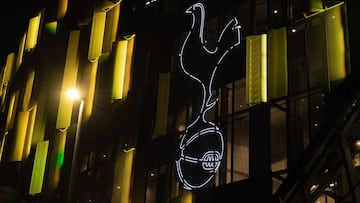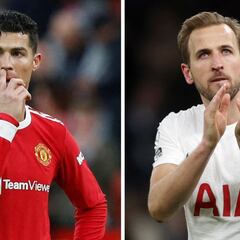Who are the owners of Tottenham Hotspur?
The London-based Premier League club has a rich history, and under new coach Antonio Conte is aiming for new heights in their state-of-the-art stadium.


Daniel Levy has become a household name over recent years, in footballing homes, at least. From the headlines he makes, most people paying some interest will know him as the chairman of Tottenham Hotspur Football Club, and the man who is tough when it comes to transfers in and out of the organisation. But what is less known is the ownership structure of the club known best as simply ‘Spurs’.
Levy and the Tottenham owners
First, a little history. Let’s step back over a century, in 1898 to be precise, when the limited company Tottenham Hotspur Football and Athletic Company Ltd was created in order to raise funds and ensure the members had limited liability. From then until 1983, major shareholding families took the reins before Spurs supporter Irving Scholar and Paul Bobroff floated Tottenham Hotspur PLC on the London Stock Exchange - making it the first European sports club to be listed.
In related news:
- Klopp agrees with decision to sanction Roman Abramovich
- Who are the owners of Manchester United?
- Conor McGregor is keen to buy
- Pochettino set to turn down United and wait for Real Madrid call
Fast forward less than a decade and new saviours were needed, so Terry Venebles and Alan Sugar made their move. Sugar, who took over as senior partner, then opened the door to investment company ENIC International Ltd in 2001. It remains the majority shareholder to this day.
As mentioned in the opening, Daniel Levy, a partner of British billionaire Joe Lewis in ENIC, is now the Executive Chairman of the club. Along with the major shareholding company, there are also tens of thousands of others who own a small stake.
🎶 Antonio, Antonio, Antioniooo... pic.twitter.com/Lxz9MDneSN
— Tottenham Hotspur (@SpursOfficial) March 9, 2022
Related stories
At the time of writing, Levy is the longest-serving chairman in the Premier League and previously held the position of director at Scottish club Glasgow Rangers. Notable events during his tenure to date have included the team reaching the Champions League final in 2019 - losing to Liverpool in Madrid - and the construction of one of the most impressive stadiums in the world, the Tottenham Hotspur Stadium, reported to have cost £1.2 billion.
This debt is seen to be the reason why Levy is often not too happy to put his hand in his pocket for new signings.

